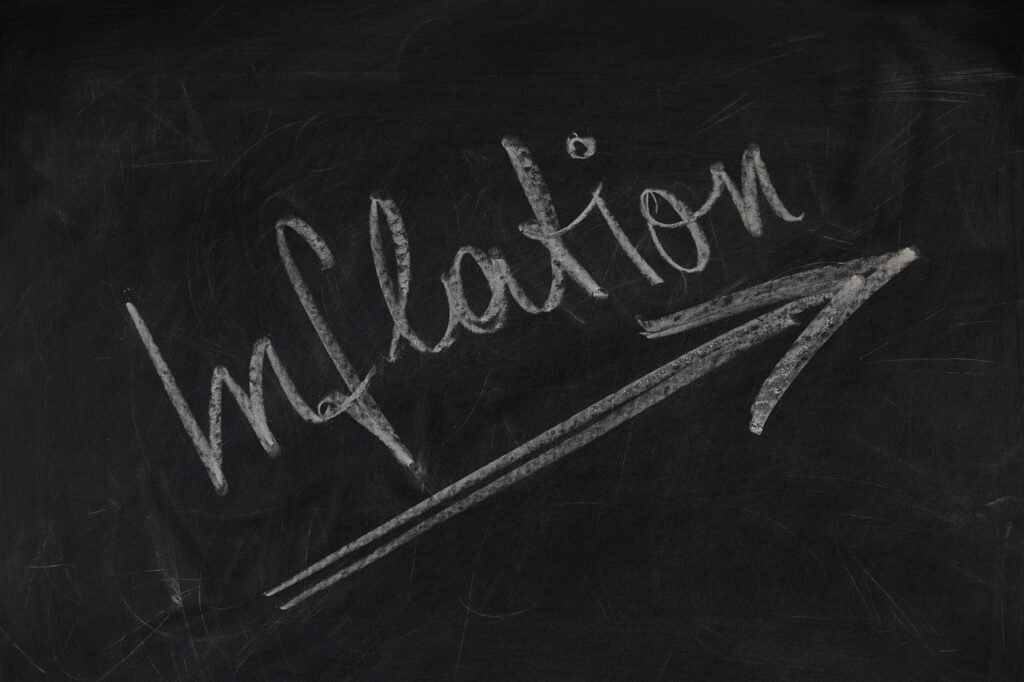You ever hear about inflation

Inflation refers to the general increase in the prices of goods and services in an economy over time, resulting in a decrease in the purchasing power of money. When inflation occurs, the same amount of money can buy fewer goods and services than before.
Here are a few key points to understand about inflation:
Causes of inflation: Inflation can be caused by various factors, including:
Demand-pull inflation: When there is an increase in aggregate demand for goods and services, it can push prices upward.
Cost-push inflation: When the production costs for businesses rise, such as increased wages or raw material prices, they may pass those costs on to consumers in the form of higher prices.
Monetary factors: An increase in the money supply in an economy can lead to inflation if the supply of goods and services does not keep pace.
Measuring inflation: Inflation is commonly measured using a price index, such as the Consumer Price Index (CPI) or the Producer Price Index (PPI). These indices track the changes in the prices of a basket of goods and services over time.
Types of inflation: There are different types of inflation, including:
Mild or moderate inflation: This is when prices rise gradually at a relatively low rate, which can be beneficial for economic growth and stability.
Hyperinflation: This is an extremely high and typically uncontrollable inflation rate, leading to rapid erosion of the value of money. Hyperinflation can have severe economic and social consequences.
Deflation: This is the opposite of inflation, where prices overall decrease. Deflation can lead to a decline in consumer spending and investment, which can negatively impact economic growth.
Effects of inflation: Inflation can have several effects on individuals, businesses, and the economy as a whole:
Reduced purchasing power: Inflation erodes the value of money, meaning that the same amount of money buys fewer goods and services over time.
Redistribution of wealth: Inflation can impact different individuals and groups unevenly, depending on their income, assets, and ability to adjust to rising prices.
Uncertainty and planning challenges: High or unpredictable inflation can make it difficult for businesses and individuals to plan for the future, as it introduces uncertainty into the economy.
Monetary policy response: Central banks and monetary authorities often employ monetary policy tools, such as adjusting interest rates or money supply, to manage inflation and maintain price stability.
Governments and central banks closely monitor and aim to manage inflation to maintain stability and promote economic growth. A moderate and stable level of inflation is generally considered desirable, as it encourages spending, investment, and economic activity, while excessive inflation or deflation can have negative consequences for the economy.

